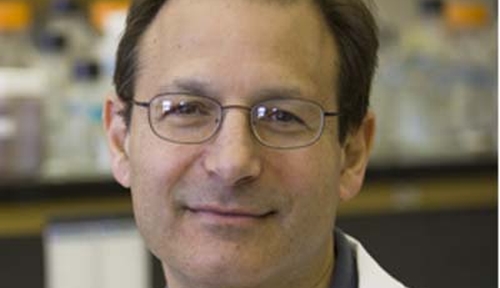“Microbiology of cheese: The good, the bad, and the smelly,” will be the topic of the next Science Cafe in Omaha on Tuesday, Aug. 9, from 7 to 8 p.m., at the Slowdown, 729 N. 14th St. The speaker will be Robert Hutkins, Ph.D., Khem Shahani Professor of Food Microbiology at the University of Nebraska-Lincoln in the Department of Food Science and Technology.
The event is free and open to the public.
Dr. Hutkins, whose research is focused on how diet affects bacteria that live in the intestinal tract, will talk about the principles of cheese-making and how scientists are working to understand and improve the flavor, quality and safety of cheese. He also will bring samples of his favorite cheeses to examine and taste.
Harmless microorganisms in cheese make it taste good, Dr. Hutkins said, by releasing enzymes that break down proteins, amino acids, carbohydrates, and fats. Some of these changes occur rather quickly, but many take time. Thus, during aging, cheese flavor and texture develop and improve – just like aging wine. What type of cheese you get — up to 1,000 types — depends on appropriate manipulation of bacteria and other microorganisms, temperature, length of aging, the type of milk, and how salt is applied, he said.
Dr. Hutkins recently published a paper on the genome — gene map — of the bacterium used in the manufacture of mozzarella, Swiss cheese and yogurt. Employing the same technology used to sequence the human genome, the paper provides insight into how traits responsible for flavor, texture, and fermentative performance are expressed in the bacterium.
Before joining the UNL faculty in 1987, Dr. Hutkins was a research scientist at Sanofi Bio Ingredients in Waukesha, Wis. He received his bachelor’s and master’s degrees from the University of Missouri, his doctoral degree from the University of Minnesota, and he was a post-doctoral fellow at Boston University School of Medicine. He serves on the scientific board of the International Probiotics Association.
Science Cafe is a free educational event sponsored by UNMC and other groups to increase the population’s science literacy. The event is hosted by UNMC, Bio Nebraska and the Nebraska Coalition for Lifesaving Cures.
A more scientifically literate populace is a goal in UNMC’s strategic plan. The goal of the committee has been to introduce and get young adults interested in science by presenting it in a casual setting. Free pizza, provided by the Nebraska Coalition for Lifesaving Cures, will be available for the first 50 attendees.
For more information about Science Cafes, go to www.unmc.edu/sciencecafe.
Through world-class research and patient care, UNMC generates breakthroughs that make life better for people throughout Nebraska and beyond. Its education programs train more health professionals than any other institution in the state. Learn more at unmc.edu.
